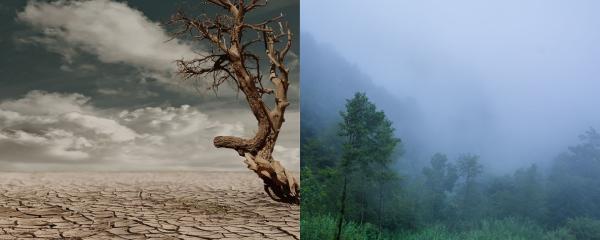
IIT Palakkad study shows how different indices used to predict drought combined with effects fof climate change can lead to different climate predictions for the future

IIT Palakkad study shows how different indices used to predict drought combined with effects fof climate change can lead to different climate predictions for the future
Researchers from the IISc, Bengaluru, BNHS, Mumbai, OSU, USA, and NHM, London, have discovered two new species of lizards in the Western Ghats.
In an exciting recent study, researchers have reported, for the first time, an accidental encounter of a male praying mantis (Hierodula tenuidentata), eating a guppy fish (Poecilia reticulata) in Karnataka.
The banks of the river Krishna, an iconic river in South India, is a sight to behold! As you gaze through its vastness, have you ever wondered how the river is, and since when it is flowing? Here is a trivia—the rivers that flow in Karnataka are, in fact, older than the mighty Himalayas!
Savitri is a cheerful 6-year old girl with twinkle in her eyes and swiftness in her feet. She is extremely delighted to pen down the curvy tip of the beak of Purple-rumped Sunbird in her note, her 100th bird species to be identified during her birding trips. The alluring plumage, swift flight, striking songs of these feathered friends fascinate not only her, but the entire mankind!
A sneak peak into the world of the moth, a severely under studied insect that is in dire need of conservation.
Crab spiders are a family of small, pretty spiders, some of which you could find in your own backyard or even on a potted plant. They are accomplished ambush hunters, making meals out of insects much larger than themselves – a crab spider half the size of your fingernail can easily grab a large butterfly. They are coloured to blend in remarkably with their surroundings, much like an octopus or a chameleon would.
In a recent article published in the `Science’ magazine, titled ‘When the cure kills—CBD limits biodiversity research’, researchers have questioned the Convention on Biological Diversity (CBD), a framework formulated to conserve biodiversity.
Scientists from the Indian Institute of Science, Bangalore, study how climate change is affecting small herbivores in the Himalayas.
In a recently published study, the researchers have taken the first step of scientifically naming the fish as Tor remadevii, with a hope of reviving its numbers.
Researchers from the Indian Institute of Science, Bangalore, find how geckos from India could have spread into and adapted to the Sri Lankan environment.